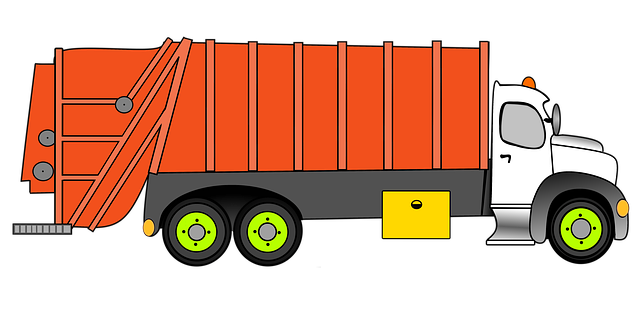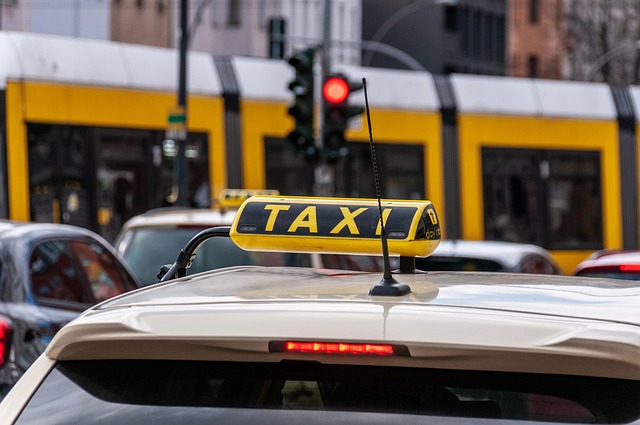Registering a car in California is a straightforward process, but understanding the requirements is key. This guide will walk you through the steps, from gathering essential documents to verifying your vehicle’s VIN (using a trusted DMV VIN verifier). You’ll learn how to complete the Vehicle Registration Application at your local DMV office or through online services. By following these steps, you’ll ensure a smooth car registration experience in California.
- Understand California Car Registration Requirements
- Gather Necessary Documents for Car Registration
- Visit Your Local DMV Office or Use Online Services
- Complete and Submit the Vehicle Registration Application
- Verify Vehicle Identification Number (VIN) Accuracy
Understand California Car Registration Requirements

Before registering your car in California, it’s crucial to understand the state’s specific requirements. The California Department of Motor Vehicles (DMV) mandates that all vehicles operated within the state be properly registered and have a current vehicle inspection. This process involves verifying the Vehicle Identification Number (VIN) of your car, which is a unique code that identifies your vehicle. Utilize a DMV VIN verifier or a mobile vin verifier to ensure the vehicle’s history is clean and meets safety standards.
Additionally, for peace of mind, consider conducting a vin inspection to check for any outstanding issues or recalls. This step is essential to navigating California’s registration process smoothly. Keep in mind that failure to meet these requirements can result in fines and legal complications, so always ensure your vehicle is up to code before attempting to register it with the DMV.
Gather Necessary Documents for Car Registration

Before you begin the registration process, make sure to gather all the essential documents required by the California Department of Motor Vehicles (DMV). These include your vehicle’s registration certificate from the previous state, a completed and signed Application for Title and Registration, and proof of insurance. Additionally, you’ll need to provide a valid driver’s license or state ID card. One crucial document is the Vehicle Identification Number (VIN) verifier, which can be obtained through a DMV office or various online platforms. Some residents prefer using a mobile VIN verifier for added convenience during this initial preparation stage.
A key step in the registration process involves conducting a VIN inspection to verify the vehicle’s history and ensure it complies with California’s standards. This inspection checks for any outstanding recalls, previous accidents, or potential fraud. With the help of your chosen VIN verifier—whether obtained through the DMV or a mobile application—you can conveniently perform this check before submitting your registration application.
Visit Your Local DMV Office or Use Online Services

Visiting your local DMV office or utilizing online services is a crucial step when registering a car in California. The California Department of Motor Vehicles (DMV) provides several options for a smooth registration process, ensuring that you can complete it efficiently, whether in person or virtually. One essential tool available to streamline the procedure is a dmv vin verifier. This service allows you to verify your vehicle’s identification number (VIN), which is critical for accurate and timely registration.
If you prefer a more convenient approach, consider using a mobile vin verifier to check your VIN before visiting the DMV. Alternatively, many services offer vin inspection as part of their package, providing added peace of mind. By leveraging these modern tools, such as online platforms or mobile apps, you can significantly enhance the registration experience in California.
Complete and Submit the Vehicle Registration Application

To register your car in California, the first step is to complete and submit the Vehicle Registration Application. This form requires essential information about your vehicle, including its make, model, year, and unique Vehicle Identification Number (VIN). The VIN is a crucial piece of data for any vehicle registration process, as it allows the California Department of Motor Vehicles (DMV) to verify the car’s history and ensure it meets all necessary safety standards.
Using a DMV-approved VIN verifier, such as a mobile vin inspection tool, can streamline this process. With a simple scan or entry of your VIN, you can access detailed vehicle information, including its current and previous owners, service records, and any reported accidents or damage. This helps to ensure accuracy on your application, reducing potential delays in the registration process.
Verify Vehicle Identification Number (VIN) Accuracy

Before registering your car in California, it’s crucial to ensure the Vehicle Identification Number (VIN) is accurate and legitimate. The VIN is a unique code that identifies your vehicle and is essential for its registration process. To verify the VIN, you can use a DMV-approved vin verifier, which cross-references the number against official databases to confirm its authenticity. This step is vital as an incorrect or tampered-with VIN can lead to registration issues or even legal complications.
Consider utilizing a mobile vin inspection service for convenience and efficiency. These services offer on-site or remote verifications, allowing you to check the VIN’s validity without visiting a DMV office. Alternatively, a simple online search for “mobile vin verification” or “vin inspection near me” can guide you towards reputable options that cater to California residents. Ensuring your VIN is accurate is an essential part of the registration process and will help avoid any potential delays or errors.
Registering a car in California is a straightforward process, but understanding the requirements and gathering the right documents are essential. By visiting your local DMV office or utilizing online services, you can efficiently complete the vehicle registration application. Remember to verify the accuracy of your Vehicle Identification Number (VIN) using a trusted dmv vin verifier to ensure all details match. With these simple steps, you’ll have your California car registration taken care of in no time.
